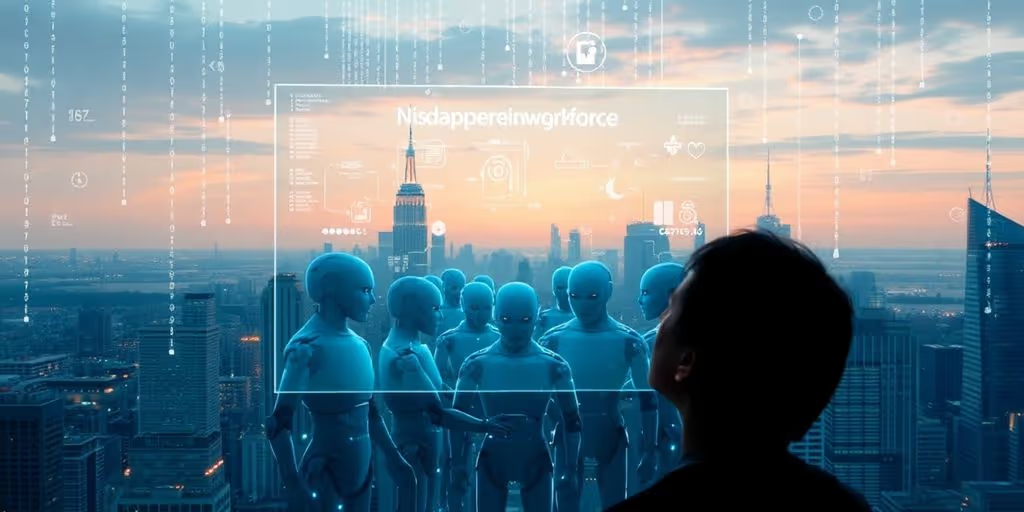
AI's rapid advancement could lead to a significant surge in unemployment, particularly impacting entry-level white-collar positions. Dario Amodei, CEO of Anthropic, a leading AI company, has issued a stark warning that artificial intelligence might eliminate up to 50% of these jobs within the next five years, urging immediate preparation from governments and businesses.
Anthropic CEO Dario Amodei has voiced serious concerns about the potential for AI to cause widespread job displacement. He believes that the development of large language models is progressing at an unprecedented rate, soon matching or even surpassing human capabilities in various tasks. Amodei suggests that the true scale of this disruption is not yet widely understood by the public or policymakers.
Amodei argues that there's a significant gap between the rapid evolution of AI and the public's awareness of its implications. He suggests that governments may be hesitant to disclose the full extent of the risk to avoid panic or to maintain a competitive edge in the global AI race. Meanwhile, businesses are already realizing cost savings through AI, while many workers remain oblivious to the impending changes.
Recent data supports Amodei's concerns. A report by venture capital firm SignalFire indicates a 50% drop in Big Tech's hiring of new graduates compared to pre-pandemic levels, with AI adoption cited as a contributing factor. The report also highlights that while mid and senior-level tech roles saw an uptick in 2024, entry-level positions have not recovered. In 2024, early-career candidates accounted for only 7% of total hires at Big Tech firms, a 25% decrease from 2023.
Heather Doshay, a partner at SignalFire, noted that "AI is doing what interns and new grads used to do." She explained that companies can now hire one experienced worker, equip them with AI tools, and achieve the output of a junior worker without the associated overhead.
While AI is absorbing lower-skill tasks, it's not entirely responsible for the decline in early-career opportunities. Other factors, such as negative perceptions of Gen Z employees and tighter industry budgets, also play a role. Doshay advises new graduates to view AI as a collaborator rather than a competitor, emphasizing the need to "level up faster" by embracing AI tools and developing a resourceful, ownership-oriented mindset.
This isn't the first time Amodei has cautioned the public about AI's risks. He previously spoke about the potential for "misuse" by malicious actors, which could threaten millions of lives as early as 2025 or 2026. Anthropic, along with other AI companies like OpenAI, emphasizes the importance of third-party safety assessments and transparency regarding the risks uncovered during their development processes. Amodei acknowledges the irony of his position—building and selling the very technology he warns about—but asserts that those involved in AI development have a responsibility to be forthright about its trajectory.